(Zero)
On the afternoon of March 9, 2025, it was the day of the STEMA exam. This exam is separate from the Lanqiao Cup. That day, because Zhuangzhuang’s parents were quite busy, his mother set up the tablet for him to monitor and then went to work. Later, when the exam was over, his mother told me that Zhuangzhuang only spent half an hour on the exam before submitting it. I was surprised because the STEMA exam lasts only 90 minutes. When I asked Zhuangzhuang why he submitted it so early, he said he had done everything he could and submitted it, having only completed one programming question. I asked if he attempted any partial scores on the other programming questions, and he said he did not.
The next day, I finally realized that the reason he rushed to submit was to play on the tablet. Since his parents were not around, the sooner he submitted, the longer he could play on the tablet. I asked him if he submitted early to play on the tablet, and he said, “How did you know?” I asked why he didn’t wait until the exam was over to play, and he said, “It’s not easy to get to play on the tablet, so I wanted to play a little longer.” His mother said he played on the tablet for over four hours that afternoon.
Kids can be so exaggerated. However, I told him before the exam that no matter how he performed in the STEMA competition, I wouldn’t scold him. I could only emphasize that he should not submit early next time. Because he only completed one of the four programming questions, while the other two students in the same group scored on one question plus partial scores on others, I felt he might not make it into the top 60%, meaning he might not advance. On Friday, March 21, the day the STEMA exam results were released, he was the only one who did not advance.
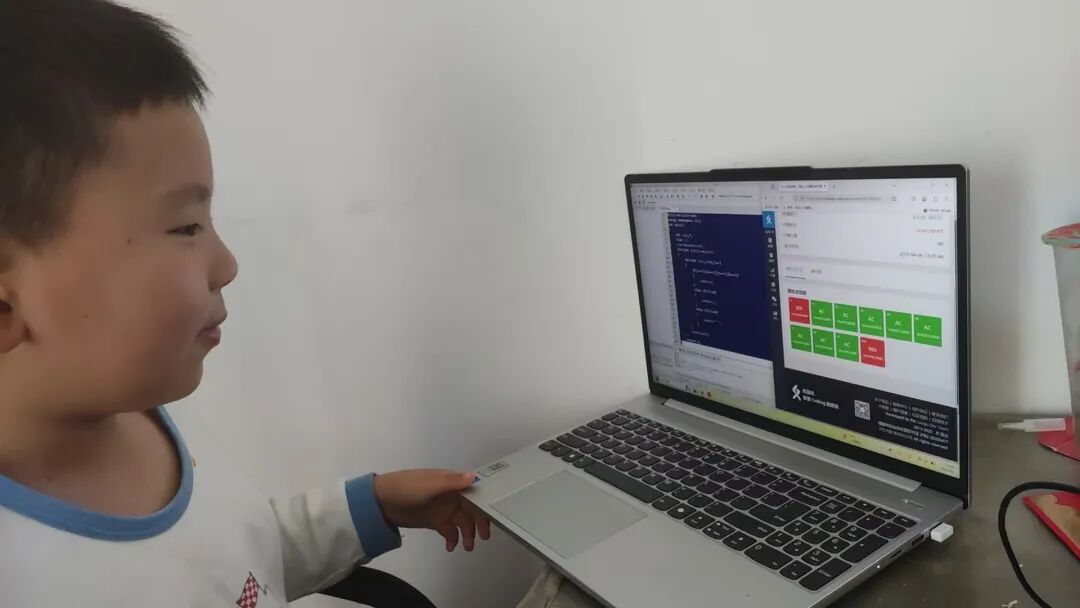
(One)
On March 22, 2025, it was the GESP spring exam day, with the exam time from 9:30 AM to 11:30 AM. Before the exam, I reminded the participating children not to submit early.
Around 10:50, the father of Yuge from Guangzhou sent me a message saying that Yuge found the questions too easy and submitted early, scoring full marks on both programming questions in the exam.
Then I received a call from Zhuangzhuang’s dad, saying that Zhuangzhuang submitted early, scoring full marks on the first programming question but could not solve the second one. If he didn’t attempt the second question, his total score would only be 75. I had a bad feeling.
Before the results were released, I reviewed the multiple-choice and judgment questions with Yuge and Zhuangzhuang. If they remembered their answers accurately, Yuge should score around 92, while Zhuangzhuang should score around 63.
On March 28, the results were released: Yuge scored 90, and Zhuangzhuang scored 55.
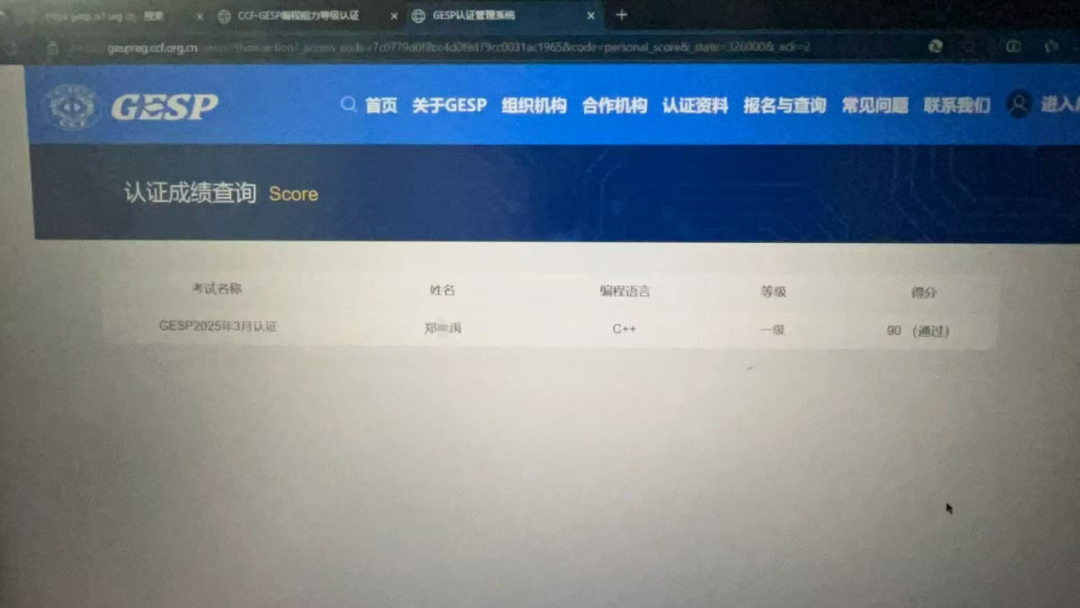
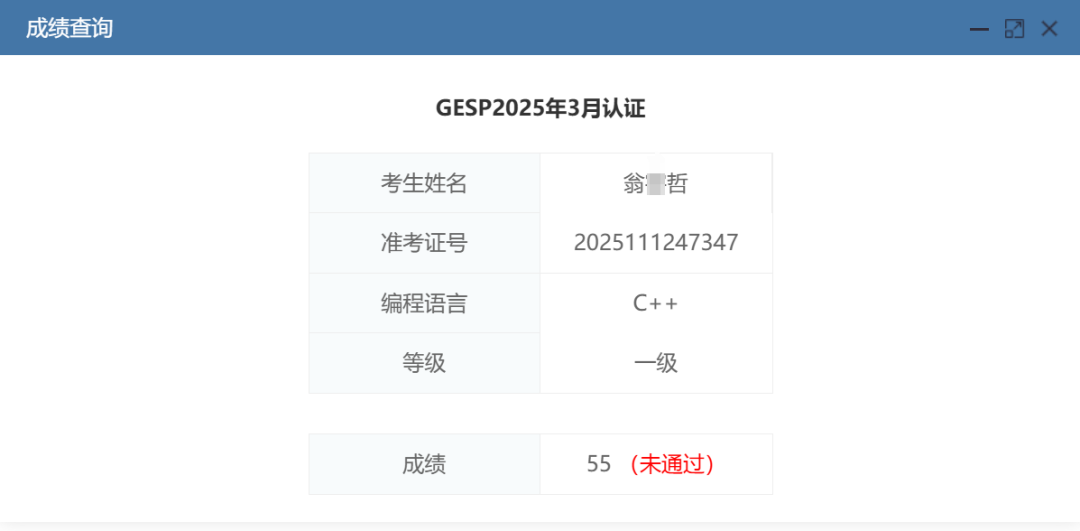
(Two)
The Putian Education Bureau has organized a C++ special competition every year in the first half of the year since 2020, and this is the fifth edition. This competition is divided into elementary and middle school groups, with no high school group.
The competition consists of three rounds: the first round is akin to a school competition, the second round is like a district competition, and the third round is the city finals.
This year’s first round of selection took place on the afternoon of March 23, with Zhuangzhuang and Xuan participating.
This time, Zhuangzhuang did not submit early, and in the end, both he and Xuan scored 40 points on the second question, with no points on the other three questions.
Typically, the second question is slightly more difficult than the first. They both scored zero on the first question because it looked like this:
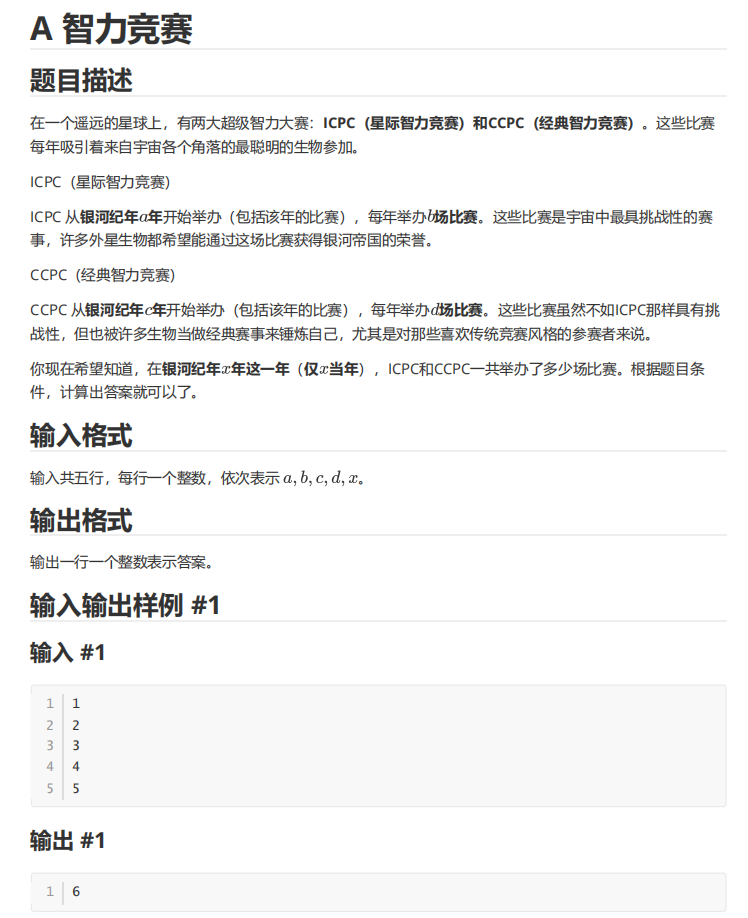
If they could understand the question, it wouldn’t be difficult. However, because the question was quite long, younger elementary school students might not be able to comprehend it.
I suspect that Zhuangzhuang and Xuan did not understand this question; they initially insisted they did. I provided several sets of data, and they couldn’t answer any correctly. Only then did they realize they had not understood the question in the exam.
After understanding the question, they quickly wrote the program.
Xuan said that 21 students from their school participated, and 13 scored zero, likely due to the difficulty of understanding this question.
Although they did not score on this question, it was beneficial for enhancing their understanding. Previously, when I asked Zhuangzhuang which school subjects were closely related to programming, he said mathematics and English were the most relevant. At that time, he couldn’t understand the relationship between programming and Chinese.
In fact, the subject most closely related to programming is mathematics, followed by Chinese, and then English.
Chinese is not only the foundation of programming but also the foundation of mathematics.
(Three)
Zhuangzhuang’s three consecutive losses made me quite depressed.
Usually, if a child is significantly behind in skill, I wouldn’t rashly suggest they participate in competitions. In previous years, the children I suggested to participate occasionally faced failure in their first competition, but I had never seen anyone lose two or even three times in a row.
Insufficient skill makes participation futile and can even undermine the participant’s confidence. Additionally, there is no need to waste a considerable registration fee.
Continuous failures can potentially damage a person’s confidence and even lead to withdrawal.
After three consecutive failures, I was quite worried about damaging Zhuangzhuang’s confidence.
One day, he came to study with me, and I saw he was still quite happy. During a break, he saw a video where someone said, “I am now terrifyingly strong.” He said, “I am now terrifyingly weak.”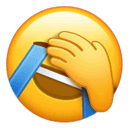
His mother said that since he failed three times, he has been studying more seriously than before.

Some of his classmates or seniors have achieved some results, which has also motivated him.
For example, Yuge from Guangzhou scored 90 in his first GESP exam and can now take the third level next time.
For example, Xiaowukong from Changsha, in the second grade, has successfully passed the first and second levels of GESP and advanced in STEMA without any failures.

For example, one of his fellow villagers, Yuge, has successfully passed two rounds of the Putian C++ special competition and advanced to the third round, tying for first place in the second round, which even the principal knows about.

(Four)
Competitions themselves are a form of education through setbacks.
Even though he is mentally strong and will not shrink back after several consecutive failures, I still hope he can win once. People need more positive reinforcement.
The STEMA selection competition in March was originally the last one for this session. The first STEMA selection competition for the next session is expected to start in September. However, the STEMA organizers unexpectedly added another selection competition in April.
I originally thought that since Zhuangzhuang had failed three times in a row, I would let him accumulate experience for a while and participate in GESP in June and the new STEMA selection competition in September.
However, I felt it was my duty to inform Zhuangzhuang’s mother about the newly added STEMA selection competition in April.
Unexpectedly, Zhuangzhuang’s mother was very determined: “Sign him up! The registration fee doesn’t matter! No matter what competition, sign him up!”
On the afternoon of April 13, after the exam, he called me and said he had completed two of the four major questions and scored partial points on the third question, asking if he could advance. He estimated that he could advance this time, and he knew the results wouldn’t come out so quickly, asking me just to confirm. I said, “How would I know?”
After that, he asked me every class if the scores were out yet, and every time I checked, the result was always “Exam results not yet announced.”
Finally, on April 25, the scores were finally announced.
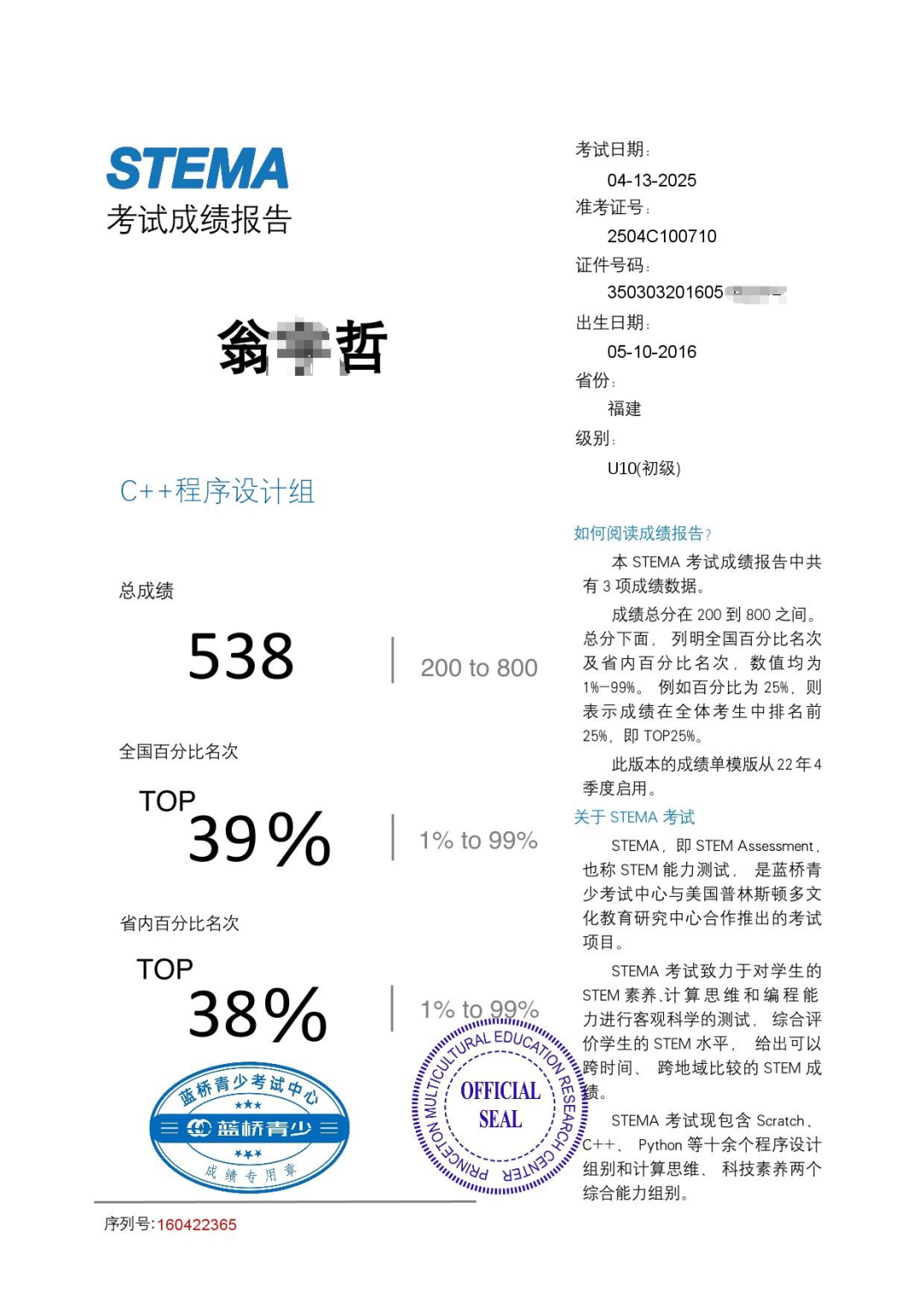
He ranked in the 38th percentile, which was even better than I expected.
Although both STEMA and GESP level one are considered valuable exams, I believe that each time he passes or advances, it will boost the child’s confidence.
(Five)
One day, Zhuangzhuang told me that among his three extracurricular classes, he liked painting and programming the most, as these were the two he actively requested to learn. He learned guitar passively because his mother signed him up, so he went to learn it. He also likes guitar a bit, but not as much as the first two.
I hope he can go further on the path he has chosen.
-END-

[For inquiries about the Xin’ao course or collaboration, please add WeChat 270114497 or scan the code]

[Algorithm video explanation website]
https://space.bilibili.com/17864349/video
[Recommended articles]
[1] A comprehensive explanation of the Informatics Olympiad
[2] Ten “military rules” for students in subject competitions
[3] Do children need to learn Scratch and Python before learning C++?
[4] Summary and analysis of the national CSP-JS preliminary score lines for 32 provinces in 2024
[5] Extremely comprehensive! A comprehensive explanation of suitable informatics competitions for primary and secondary school students
[6] Introduction to the three major competition systems
[7] 44 whitelist competitions for primary and secondary schools, which are the most worth participating in
[8] How can informatics Olympiad beginners test their level?
[9] If the limit for informatics Olympiad participants is the first prize of NOIP, is there still a need to learn?
[10] When is it appropriate for informatics beginners to start participating in competitions?
[11] What algorithms are mainly learned in the informatics Olympiad?